Ideas have consequences and so today Joe Miller and Leroy Hill are joined by the president of Ratio Christi Corey Miller to offer a biblically sound and philosophically robust discussion of Vladimir Lenin’s 1917 book The State and Revolution. They’ll show how Lenin applied the philosophy of Marx and Engels to justify the killing of millions and how many folks today practice Lenin’s politics of violence. Through their witty banter, the guys till the soil of culture to sow the seed of the Gospel. Listen in to see how Lenin’s communist ideals have shaped the Western worldview, and maybe even deformed the worldview of many Christians.
REFERENCES
10 Books that Screwed Up the World: And 5 Others That Didn't Help by Benjamin Wiker
Karl Barth and Radical Politics by George Hunsinger
Moral Man and Immoral Society: A Study in Ethics and Politics by Reinhold Niebuhr
Britannica Online, Biography of Vladimir Lenin, Prime Minister of Soviet Union
Christian Nationalism Under Review: Part 1 — Defining the Terms
A Look at Wolfe's Christian Nationalism by Leroy Hill
EPISODES IN THIS SERIES
10 Books that Screwed Up the World
If you want to understand the culture, you need to understand philosophy. But if that task seems overwhelming, this podcast series is just for you.
RELATED CONTENT
Democracy Dies in Dehumanization
I hear a lot of people saying, “a vote for Donald Trump is a vote to end democracy.” But what does this slogan mean? What danger does Trump poses? In 2019, Shawn Rosenberg, a professor at UC Irvine, argued that Trump’s populism is a symptom of the bigger sickness endangering our democracy.
STUDY GUIDE
This study guide focuses on the key ideas and biographical context of Vladimir Lenin as presented in episode 30 of raZe the roof, specifically the podcast discussion of his 1917 book "State and Revolution." The aim is to review your understanding of Lenin's philosophical underpinnings, his revolutionary tactics, and their lasting impact.
SUMMARY OF THE BIG IDEAS
Lenin's Background and Radicalization: Explore the early life and influences that shaped Lenin's revolutionary worldview, including his family, education, and experiences with the Tsarist regime.
Marxist Philosophy and its Application by Lenin: Understand how Lenin interpreted and applied the ideas of Marx and Engels, particularly concerning class struggle, the role of the state, and the necessity of revolution.
State and Revolution: Analyze the central arguments of Lenin's brochure, including his concept of the state as a product of class antagonisms, the idea of the dictatorship of the proletariat, and the eventual "withering away" of the state.
The Role of Violence and Revolution: Examine Lenin's belief in the necessity of violent revolution to achieve a socialist society and his views on the use of force against opposition.
The Dictatorship of the Proletariat: Understand this transitional phase in Lenin's thought, its purpose, and how it was intended to function.
The Concept of Private Property: Analyze Lenin's views on private property, how he redefined it, and its role in the transition to communism.
The Subversion of Language and Meaning: Explore how Lenin and subsequent Marxist thinkers utilized the manipulation of language to advance their ideology and destabilize existing social structures.
The Role of Religion: Understand Lenin and Marx's views on religion as a tool of oppression and the revolutionary goal of eliminating its influence.
Historical Examples and Legacies: Connect Lenin's ideas to historical events like the Bolshevik Revolution and the Red Terror, and consider their influence on later communist regimes and contemporary political movements.
Christian Engagement with Marxist Ideas: Examine how some Christian thinkers have engaged with or adopted aspects of Marxist thought, often by reinterpreting Christian concepts through a Marxist lens.
DISCUSSION POINTS
Below is a list of questions covering just a few of the big ideas discussed in this episode. Subscribers, feel free to weigh in with your own ideas and join me in the conversation.
What were the three significant events in Vladimir Lenin's youth that contributed to his radicalization?
According to Lenin, what is the state a product and manifestation of?
What two institutions does Lenin identify as most characteristic of the bourgeois state machine?
What did Lenin mean by the "dictatorship of the proletariat"?
How did Lenin view the role of violent revolution in achieving a socialist society?
What was Lenin's concept of private property?
How do Marxist thinkers use language to advance their goals?
How did Marx and Lenin view the role of religion in society?
What was the Red Terror and what did it involve?
How did some Christian thinkers, like Karl Barth and Reinhold Niebuhr reinterpret Marxist ideals as central to the message and mission of Jesus?
GLOSSARY
Bolsheviks: The majority faction of the Russian Social Democratic Labor Party, led by Lenin, which seized power in the October Revolution of 1917. Also known as the Russian Communist Party allies.
Bourgeoisie: The capitalist class, who own most of society's wealth and means of production. In Lenin's view, the ruling class.
Capitalism: An economic and political system in which a country's trade and industry are controlled by private owners for profit, rather than by the state.
Class Antagonisms: The inherent conflict and opposition between different social classes due to competing economic and social interests.
Communism: A political theory derived from Karl Marx, advocating class war and leading to a society in which all property is publicly owned and each person works and is paid according to their needs and abilities.
Critical Theory: A philosophical approach that critiques society and culture by applying knowledge from the social sciences and the humanities to challenge power structures and social inequality.
Dictatorship of the Proletariat: In Marxist and Leninist thought, the transitional state after the overthrow of capitalism, in which the working class (proletariat) holds political power to suppress the former ruling classes.
Equivocation: The use of ambiguous language to conceal the truth or avoid committing oneself; prevarication. In this context, changing the meaning of words based on context.
Frankfurt School: A school of critical theory and philosophy associated with the Institute for Social Research at Goethe University Frankfurt. Known for developing Critical Theory.
Ideological Violence: Violence justified or motivated by a particular political or social ideology.
Liberation Theology: A movement in Christian theology, developed mainly in Latin America, that emphasizes liberation from social, political, and economic oppression as an anticipation of ultimate salvation.
Machiavellian: Cunning, scheming, and unscrupulous, especially in politics or in advancing one's career. Characterized by cunning, duplicity, or bad faith.
Mencheviks: The minority faction of the Russian Social Democratic Labor Party, who favored a more gradual and democratic approach to socialism, contrasting with the Bolsheviks.
Meta Narrative: A narrative about narratives; a comprehensive explanation or theory about an event or series of events. In postmodern thought, a grand, overarching story or explanation.
Neo-Marxist: A modified form of Marxism that incorporates elements from other intellectual traditions, often focusing more on cultural and ideological factors than traditional Marxism's emphasis on economic determinism.
Nuclear Family: A married husband and wife along with their dependent children, regarded as a fundamental source for social cohesion and stability.
Paris Commune: A revolutionary government that briefly ruled Paris from March 18 to May 28, 1871. Seen by Marx and Lenin as a significant example of proletarian rule.
Pedagogy of the Oppressed: A seminal work by Paulo Freire that explores the relationship between the colonizer and the colonized, advocating for a pedagogy that empowers the oppressed.
Postmodernism: A late 20th-century movement characterized by broad skepticism, subjectivism, or relativism; a general suspicion of reason; and an acute sensitivity to the role of ideology in asserting and maintaining political and economic power.
Proletariat: The working class; people who do not own the means of production and sell their labor for wages. In Marxist thought, the oppressed class.
Radicalized: Caused someone to adopt radical positions on political or social issues.
Realpolitik: A system of politics or principles based on practical rather than moral or ideological considerations.
Red Terror: A campaign of political repression and executions carried out by the Bolsheviks after the beginning of the Russian Civil War in 1918.
Russian Civil War: A multi-party civil war in the former Russian Empire immediately following the two Russian Revolutions of 1917, as many factions vied to determine Russia's political future.
Social Democrats: A political ideology that advocates for a gradual, democratic transition from capitalism to socialism through parliamentary means.
Social Justice: Justice in terms of the distribution of wealth, opportunities, and privileges within a society.
Social Construction: The idea that society creates certain norms and values through social interactions and beliefs rather than them existing objectively.
Socialism: A political and economic theory of social organization which advocates that the means of production, distribution, and exchange should be owned or regulated by the community as a whole.
Stateless Society: A society not governed by a state, characterized by non-hierarchical structures and voluntary association.
Struggle: In Marxist and Leninist thought, the ongoing conflict and resistance against oppressive forces and systems.
Transversal Dialogue: A dialogue that crosses different perspectives and positions to find common ground or understanding.
Tsarist Regime: The imperial regime of Russia under the rule of the Tsars (emperors), which existed until the 1917 revolutions.
Utopian: Modeled on or aiming for a state in which everything is perfect; idealistic.
Utilitarianism: The doctrine that actions are right if they are useful or for the benefit of a majority. A consequentialist ethical theory.
Withering Away of the State: A concept in Marxist theory, particularly associated with Engels and Lenin, suggesting that after the socialist revolution and the establishment of a classless society, the state would gradually lose its coercive functions and eventually disappear.


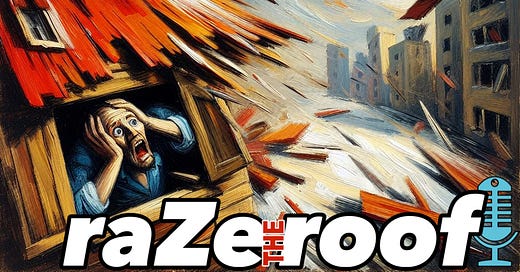




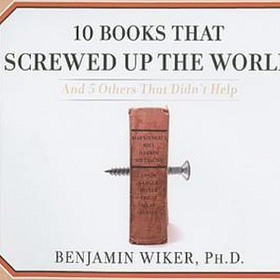




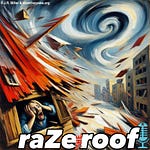

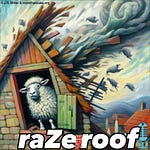
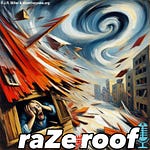

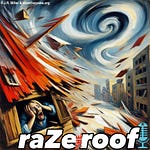
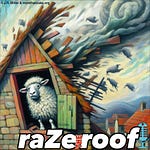
Share this post